Departure
In the early 20th century, the French colonial government posted recruitment notices in many newspapers to serve colonial exploitation. Recruitment notices were sent to localities, with promises: High salaries, daily allowance of half a kilo of rice, 200 grams of meat, fish, vegetables, sugar, salt, soap, etc.
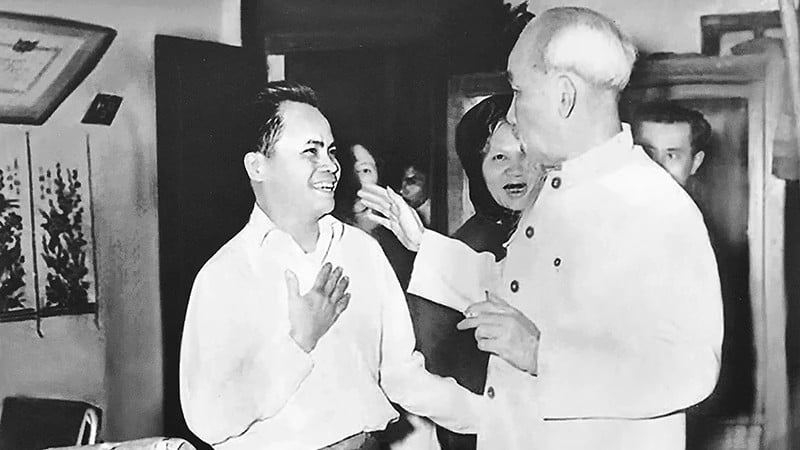 |
| The photo captures the moment President Ho Chi Minh visited the family of Mr. Pham Van Cong (left), New Year's Eve, Quy Mao Year 1963. (Photo: Nhan Dan Newspaper) |
Like thousands of poor workers in the Northern Delta, Mr. and Mrs. Pham Van Cong and Nguyen Thi Quyen (Thai Binh) registered to work as coolies in a French overseas territory in the southwest Pacific .
In early 1939, they began their journey to become “foot workers” in a foreign land. From Hai Phong port, they had to cross the sea for nearly 2 months to reach New Caledonia. They carried with them the belief that they would be paid well, live better and return home after 5 years of work. But in reality, they were exploited like slaves.
The contract stipulated a nine-hour workday, but in reality they worked 10-12 hours in harsh conditions, without medical care and with only half their rations. All terms regarding wages, living conditions and repatriation were violated by the mine owner.
“For the first few years, my parents had to live in a workers' camp, working at a nickel mine in Voh town, northern New Caledonia,” said Mr. Duc (Mr. Cong's son).
In 1944, after the contract expired but they were not allowed to return home, Mr. Cong and his fellow miners organized many strikes and protests, demanding to return home, repatriate and their legitimate rights. The movement was violently suppressed, but the fighting spirit of the “leg holders” did not die out.
In late 1946, Mr. Cong's family moved to Nouméa - the capital of New Caledonia, and started working as a freelancer. At that time, Mr. Duc was 4 years old and his parents taught him Vietnamese at home and at the community school.
In 1954, although the French colonial government banned Vietnamese language teaching in schools, the language still resounded in every home, through lullabies and stories.
“In New Caledonia, almost every house has pictures of Uncle Ho and General Vo Nguyen Giap. During holidays, Tet, and activities, we decorate the national altar, hang the national flag and pictures of Uncle Ho,” Mr. Duc recalled.
Many years have passed, but Mr. Duc still remembers every melody and lyric of the song "Grateful to Uncle Ho Chi Minh" by musician Luu Bach Thu - a song that his generation often sang in New Caledonia:
"Southern people, be eternally grateful to Uncle Ho.
How many years of living in danger and misery...
During that same period, Mr. Pham Van Trac and his wife Le Thi Ho left their hometown of Ninh Binh for Espiritu Santo Island (now part of the island nation of Vanuatu, also known as New Island) under a 5-year labor contract.
When their contracts expired, they were forced to stay. Although life in a foreign land was difficult, their hearts always turned to their homeland.
“My family still maintains a traditional lifestyle. My parents taught their children to speak Vietnamese. The house has pictures of Uncle Ho and General Vo Nguyen Giap. Despite the hardships of making a living, my father still actively contributed to the resistance fund,” said Mr. Thanh.
On June 30, 1946, upon hearing the news that the country had gained independence, the Vietnamese community in New Zealand held a solemn flag-raising ceremony in the capital, Port Vila. They composed and sang patriotic songs and raised money to send back home to support the Government in the resistance war and national construction.
Return
On January 12, 1961, the first ship carrying more than 500 overseas Vietnamese from New Caledonia arrived at Hai Phong port. Mr. Cong's family returned to their homeland on the 5th day of Tet that year. The next day, the overseas Vietnamese delegation was received by Prime Minister Pham Van Dong, representing President Ho Chi Minh, at the Presidential Palace.
In the winter of 1963, after 24 years away from home, Mr. Trac’s family returned home. Mr. Thanh, who was only 9 years old at the time, still remembers the feeling of nausea as the ship slowly approached the port. On deck, the whole family tearfully waved goodbye to their relatives waiting at the dock.
In March 1964, on the last repatriation ship from New Caledonia, Mr. Duc stood silently by the railing, his eyes following the strip of land gradually appearing in the drizzle. After more than 20 years away from home, returning for the first time, his heart was filled with indescribable emotions.
On this repatriation ship, the Vietnamese community in the New World presented the Government with 10 Peugeot 404 cars, one of which was later used to transport Uncle Ho. That car is currently on display at the President Ho Chi Minh Relic Site in the Presidential Palace and has been recognized as a National Treasure since December 2024.
Returning to their homeland, the government arranged suitable jobs for overseas Vietnamese families, helping them stabilize their lives. Mr. Cong established a garment cooperative and joined the Central Committee of the Vietnam Fatherland Front, Mr. Trac worked at the Hanoi Food Department, and his children were given opportunities to study and work.
Continuing the patriotic tradition, Mr. Cong's three sons went to war one after another: Mr. Chuc was wounded at Chu Tan Kra; Mr. Binh sacrificed himself on the Tri Thien-Hue battlefield; Mr. Minh participated in the campaign to liberate Da Nang.
Sacred Memory
More than 50 years have passed, the children of that year now have gray hair, the youngest is over 70, but the memory of Uncle Ho's New Year's Eve visit is still a sacred memory for the families returning home.
On New Year's Eve, 1963, President Ho Chi Minh unexpectedly visited Mr. Cong's family at their home at 97 Dai La, Hanoi. Although he was not present at the time, Mr. Minh still remembers every word his parents told him.
“That night, while my father was hanging Tet couplets under Uncle Ho’s picture, and my mother was busy preparing the New Year’s Eve meal, suddenly there was the sound of a car stopping in front of the gate. Before my parents could prepare anything, they saw Uncle Ho smiling and walking into the house,” Mr. Minh said. My mother exclaimed emotionally: “Is that Uncle Ho? For so many years we have been waiting to meet him…”. “So now that we have met, let’s talk!”, Uncle Ho said with a gentle smile.
My father quickly pulled out a new aluminum chair covered with canvas and invited Uncle Ho to sit down. But Uncle Ho waved his hand, chose a simple wooden chair next to the desk, and sat down. The people who came with him stood around him.
He asked my parents: Where are you going, how are the preparations for Tet, do you have banh chung? Then he asked about the difficulties of the Vietnamese community who have just returned to the country? He kindly gave advice about work, raising children...
My mother hurriedly went into the room and brought out a few pairs of banh chung, placing them on the table to respectfully invite Uncle Ho. He smiled and said that Uncle had just finished eating, then took out a cigarette to smoke. During the whole conversation, Uncle Ho was very simple and friendly like a relative.
“On New Year’s Eve, my family had Uncle Ho visit our home. It was a great honor not only for my family but also for those living far away from home. Despite being busy with a thousand things, Uncle Ho still showed his deep affection and concern for overseas Vietnamese,” Mr. Minh shared.
One year later, on New Year's Eve of the Year of the Dragon 1964, President Ho Chi Minh continued to visit Mr. Pham Van Trac's family at 36 Le Van Huu Street, Hanoi.
“At exactly 7:30 p.m., I heard a knock on the door. Uncle Ho walked in, along with two cadres. I later learned that one of the two was Uncle Vu Ky, his personal secretary. Uncle Ho was wearing a white khaki suit and leather sandals. As soon as we saw Uncle Ho, we shouted with joy. Even though we had never met him, his image had been deeply imprinted in our minds since our years in Tan Dao,” Mr. Thanh recalled.
He walked around the house, praising the cleanliness and hygiene of the house. He asked my parents about life in Tan Dao, about the overseas Vietnamese community, about work and activities since returning home. Knowing that we spoke Vietnamese well, loved sports, and maintained our cultural identity, Uncle nodded in satisfaction. He said that the country was still at war and still had hardships, but overseas Vietnamese returning home contributed to building the Fatherland, which was a very valuable thing...
Before saying goodbye, Uncle Ho took a paper package from his pocket, held it up and asked us children: “Do you know what this is?” Then, he gave us candy. “After all these years, I still remember Uncle Ho’s kind eyes and warm voice,” Mr. Thanh emotionally shared.
More than 60 years after Uncle Ho visited overseas Vietnamese families on New Year's Eve, those sacred memories have become a precious spiritual heritage, preserved with pride by their descendants, like an ever-flowing source.
According to Nhan Dan Newspaper
https://nhandan.vn/ky-vat-thieng-lieng-tu-dem-giao-thua-co-bac-post880504.html
Source: https://thoidai.com.vn/ky-vat-thieng-lieng-tu-dem-giao-thua-co-bac-213610.html


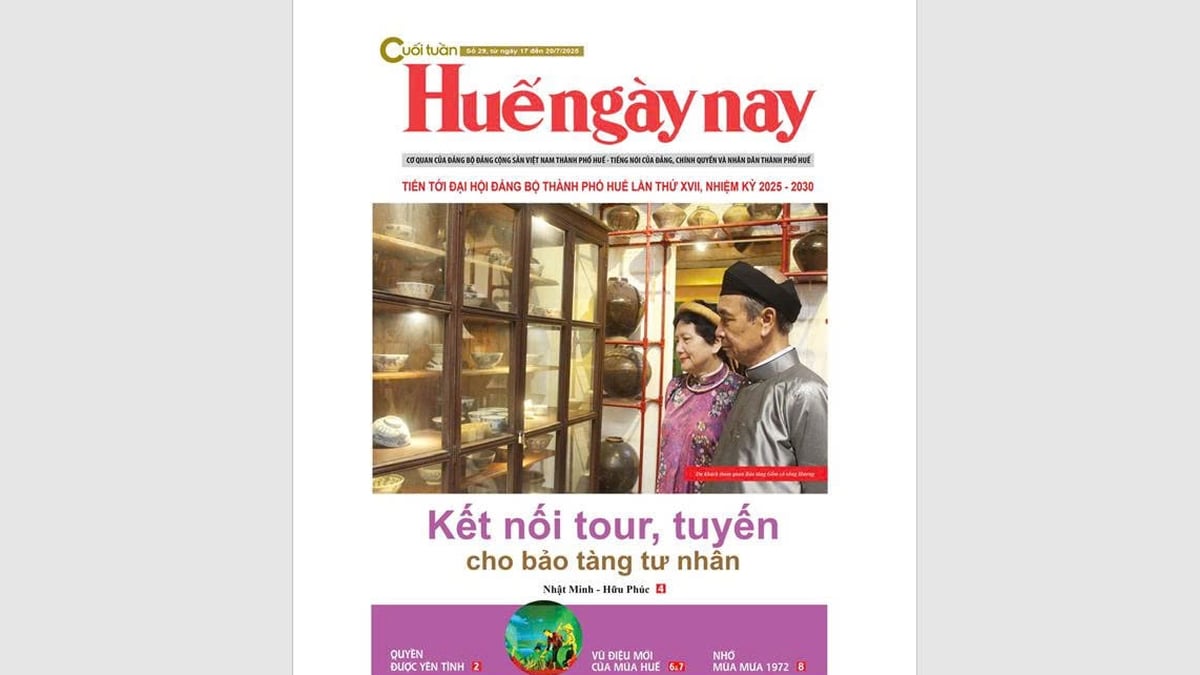
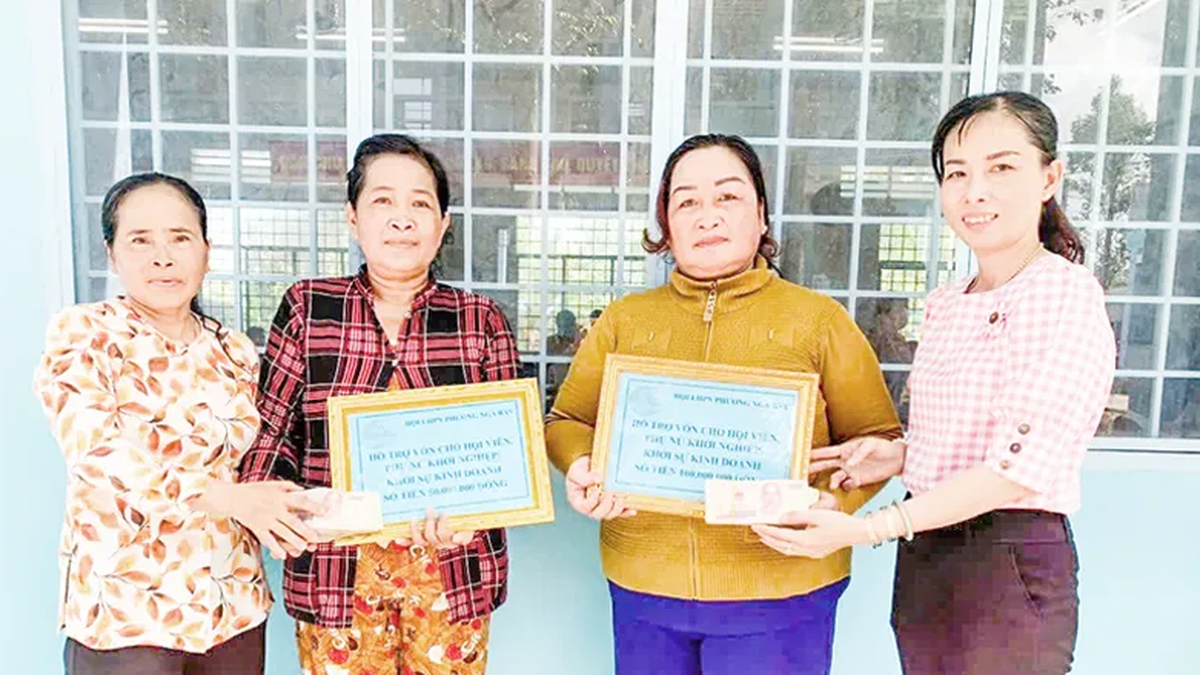
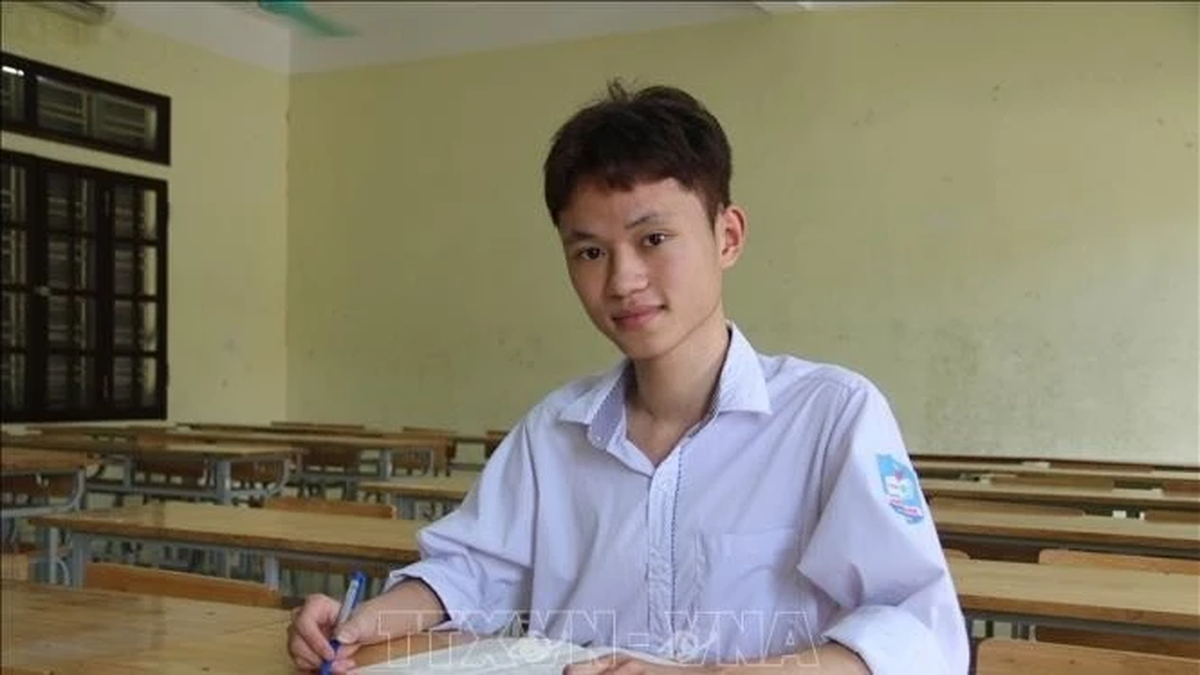
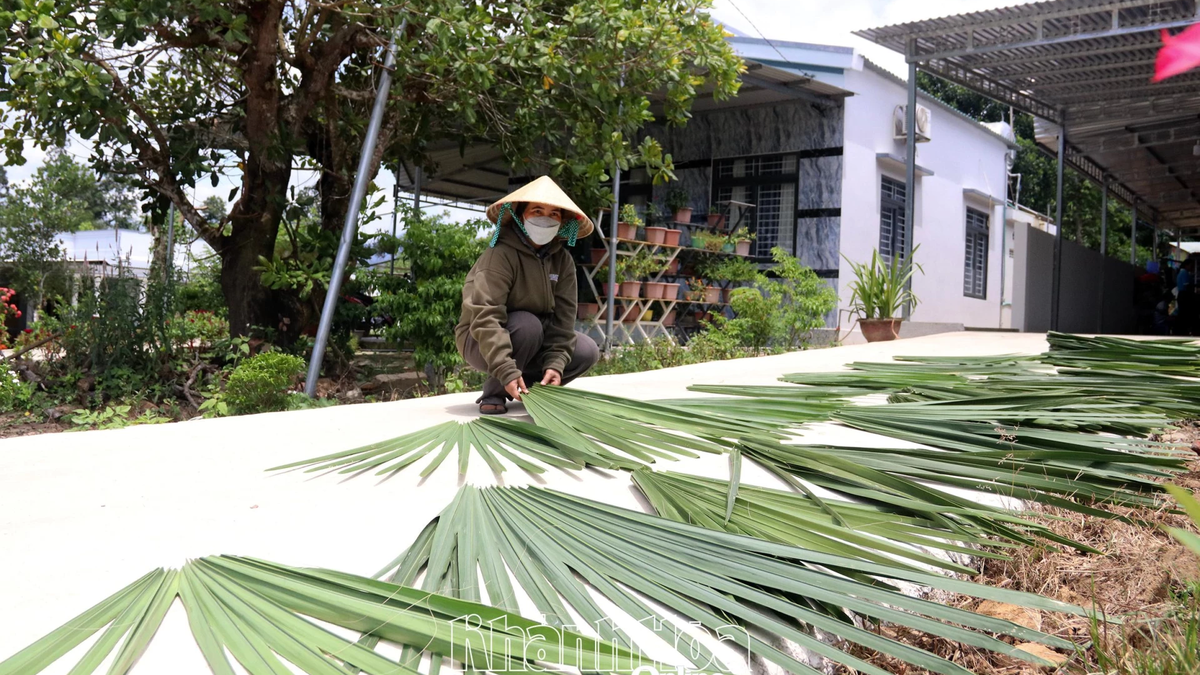
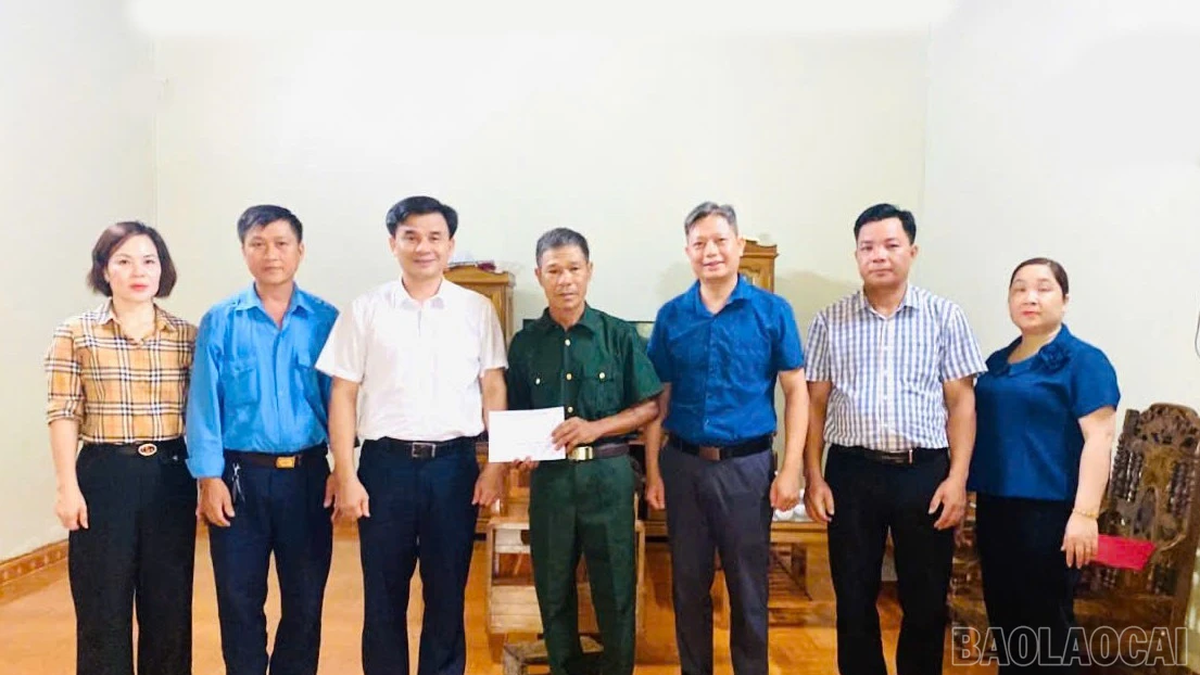
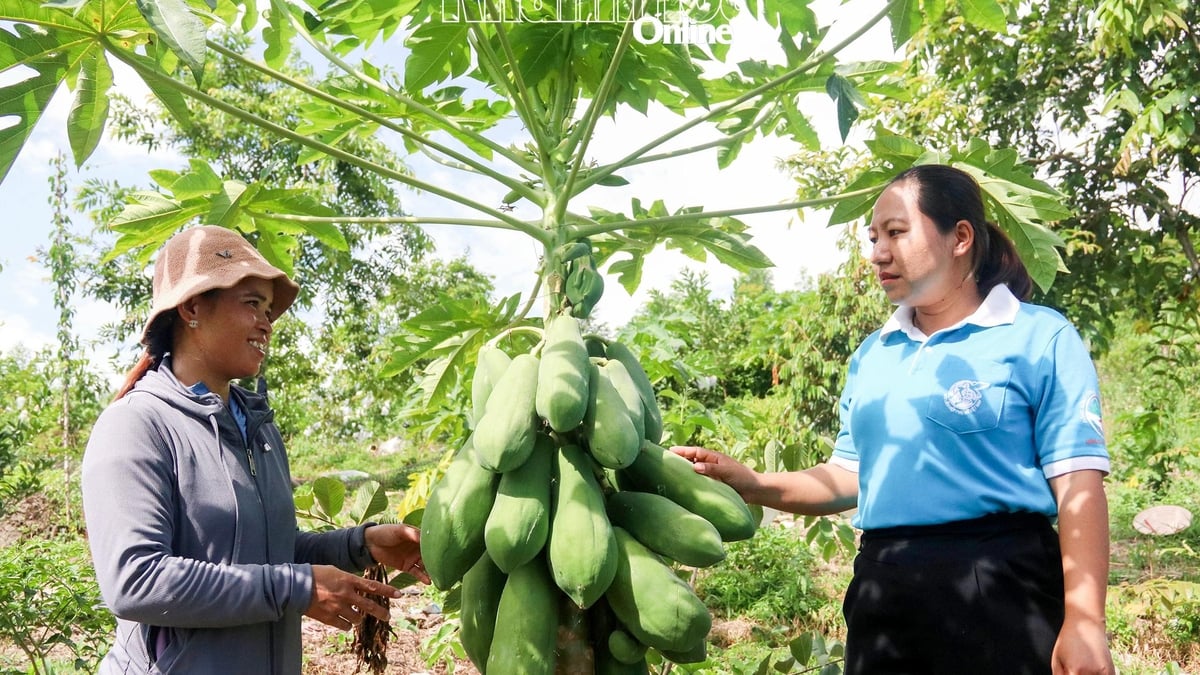
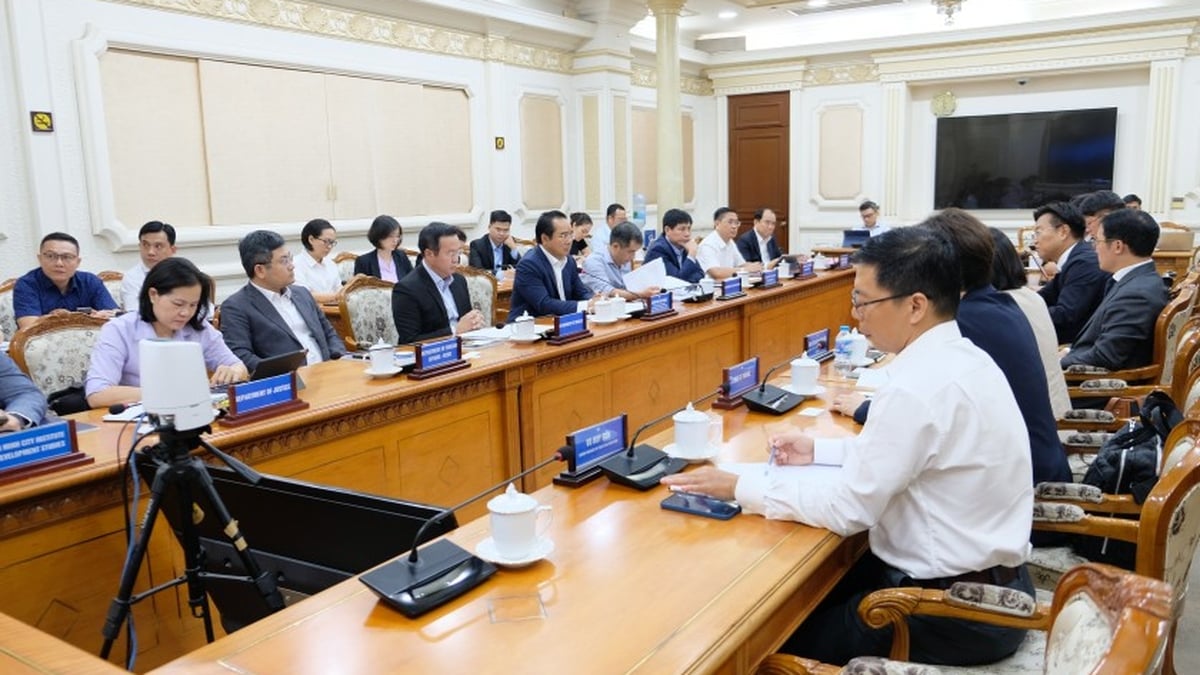
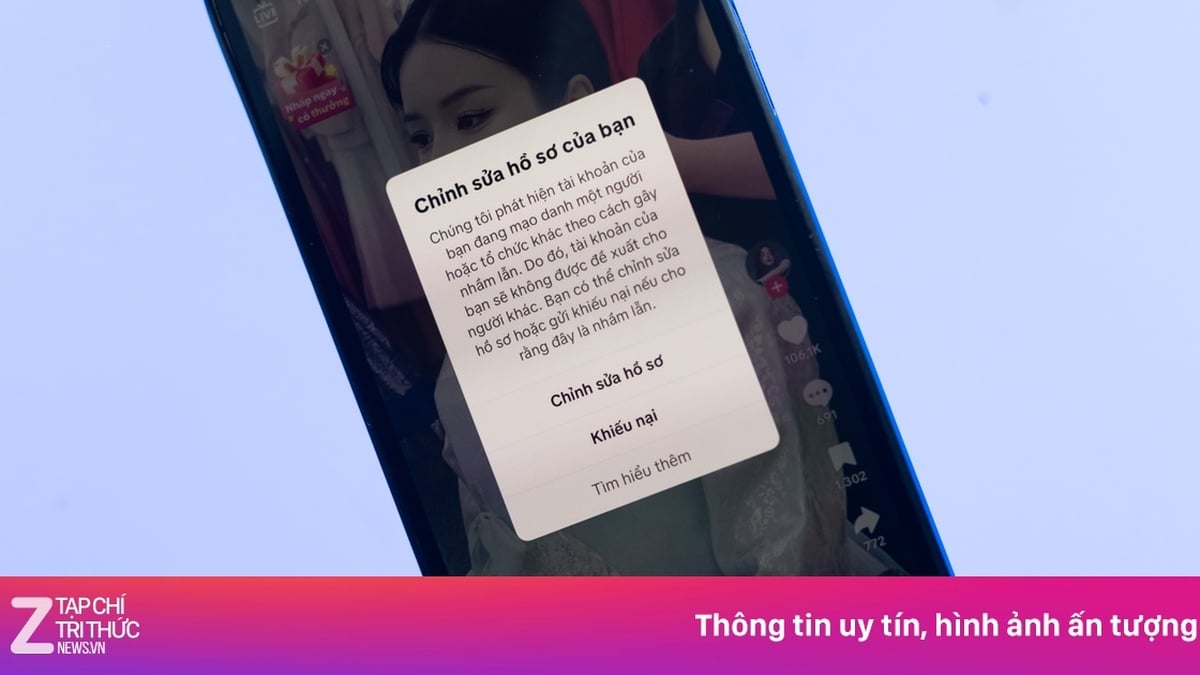
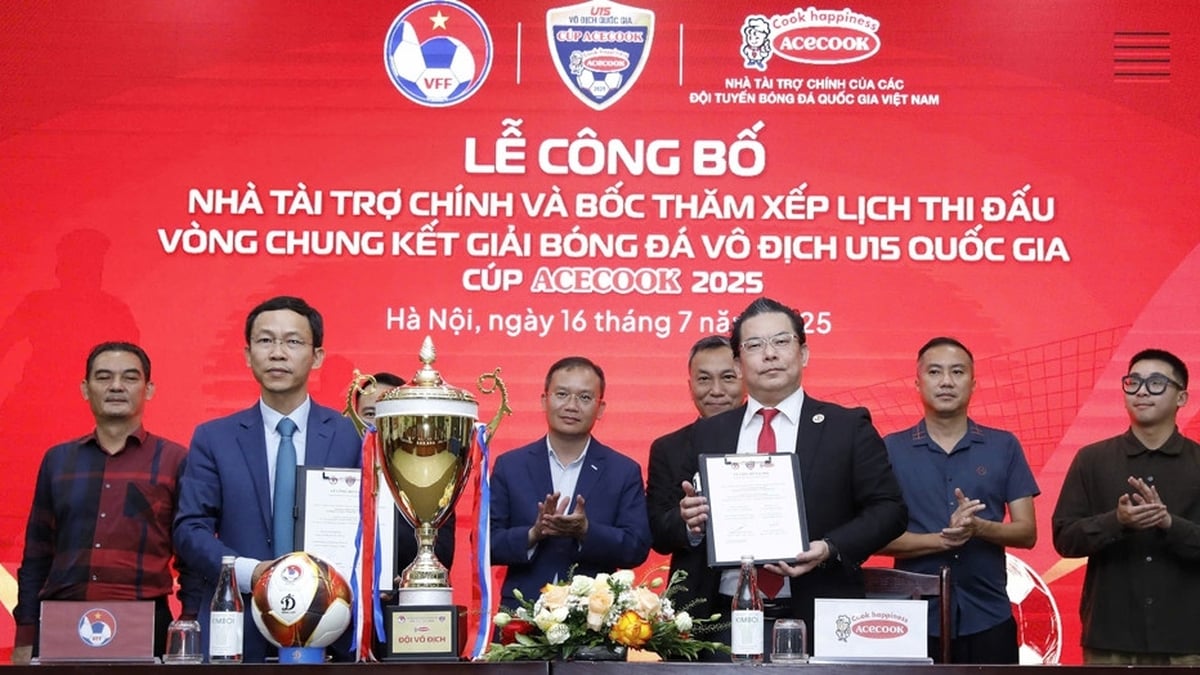
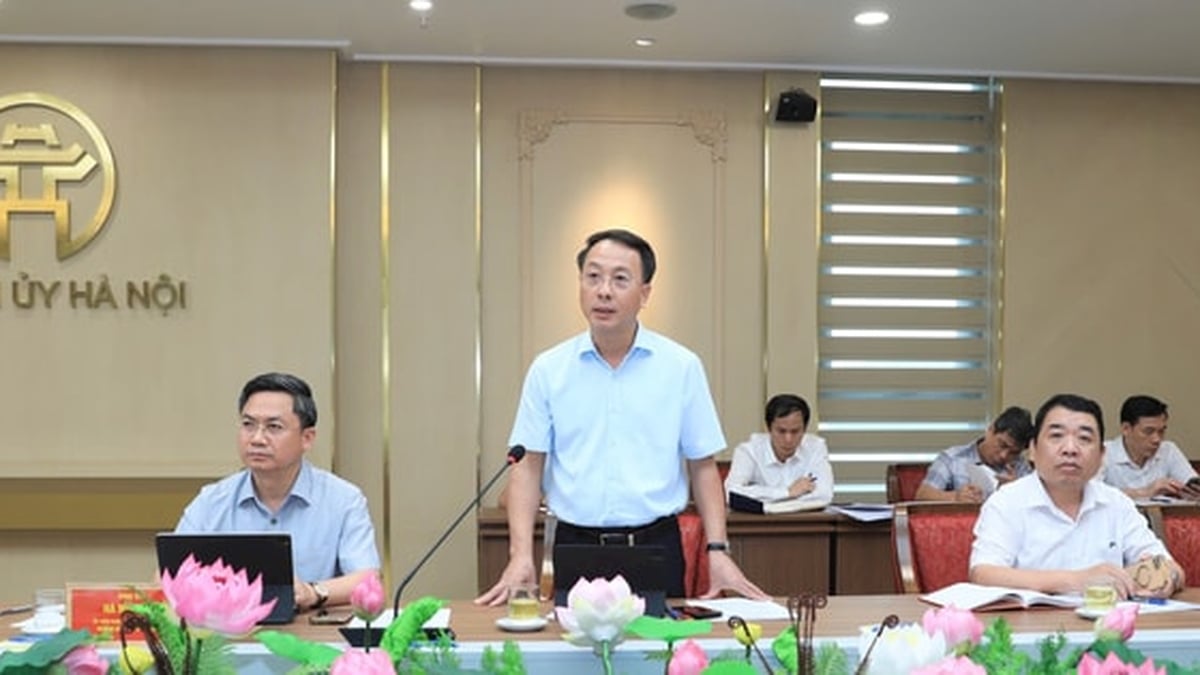








































![[Maritime News] More than 80% of global container shipping capacity is in the hands of MSC and major shipping alliances](https://vphoto.vietnam.vn/thumb/402x226/vietnam/resource/IMAGE/2025/7/16/6b4d586c984b4cbf8c5680352b9eaeb0)












































Comment (0)